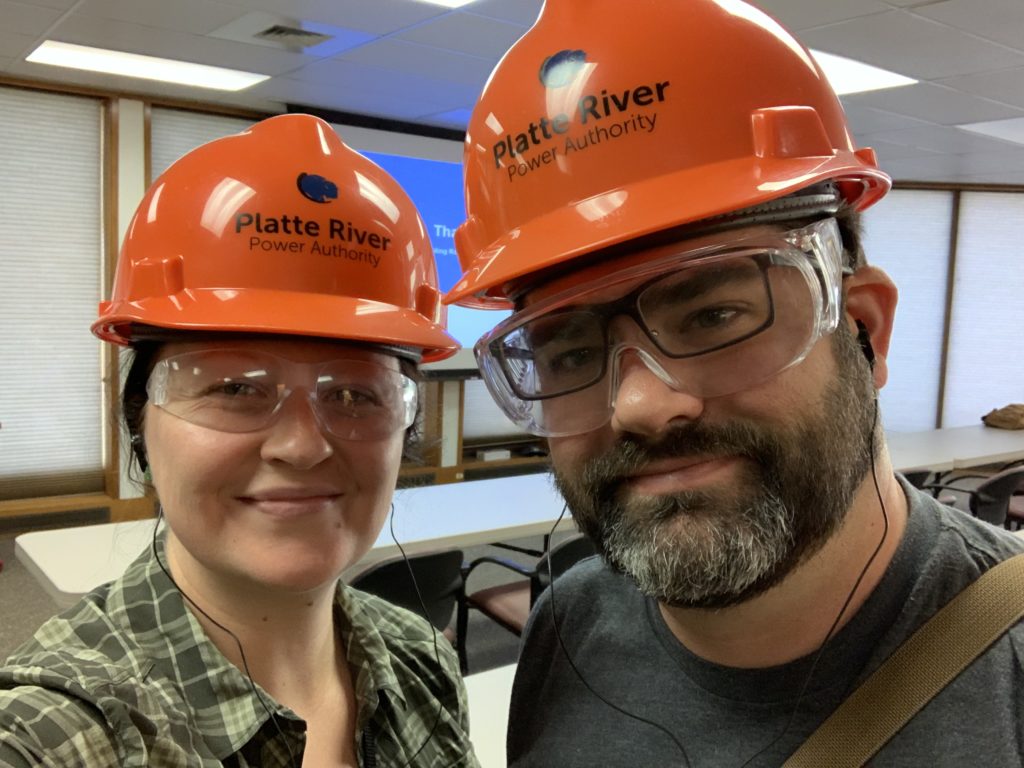
I tell ya, the opportunities for civic engagement in Fort Collins are never-ending. I have been truly impressed. This week Dan and I took advantage of a free all-day bus tour to better understand our local water and energy utilities. (If that doesn’t interest you, you can stop reading now — it doesn’t get less geeky from here.)
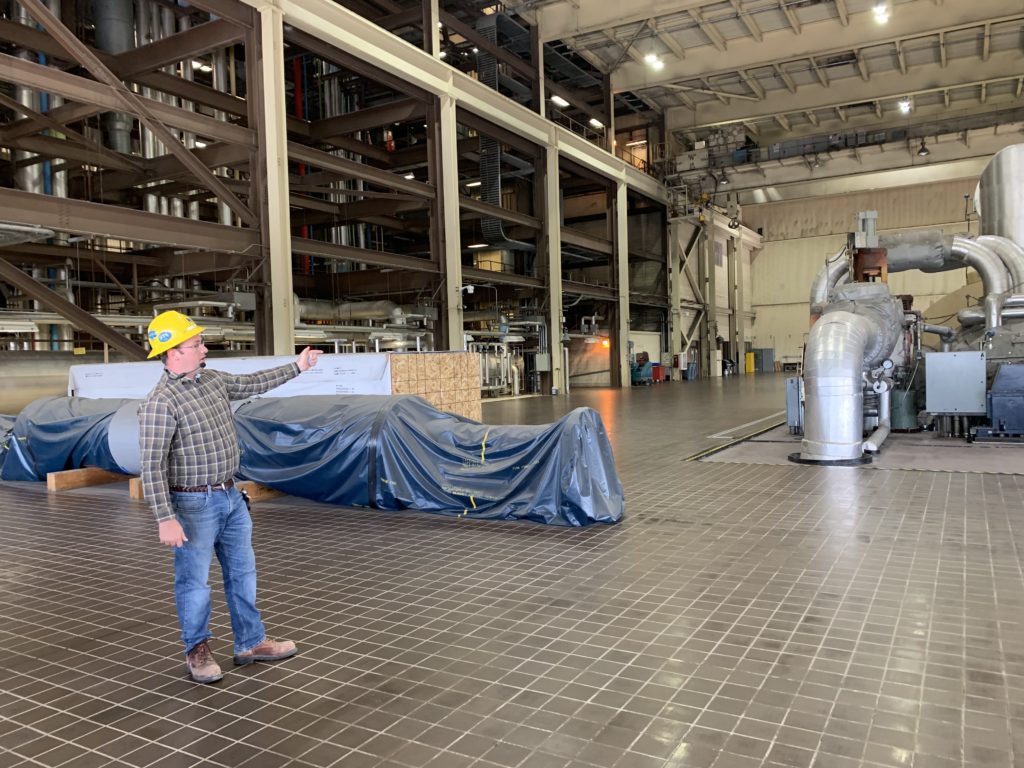
Our first stop was Rawhide Energy Station and the Platte River Power Authority which operates it. Rawhide generates electricity primarily from coal and occasionally from natural gas, supplementing with solar and wind whenever available. They provided a thorough and engaging demonstration about how coal is received, pulverized, and turned into energy, as well as what happens to the byproducts of the process.
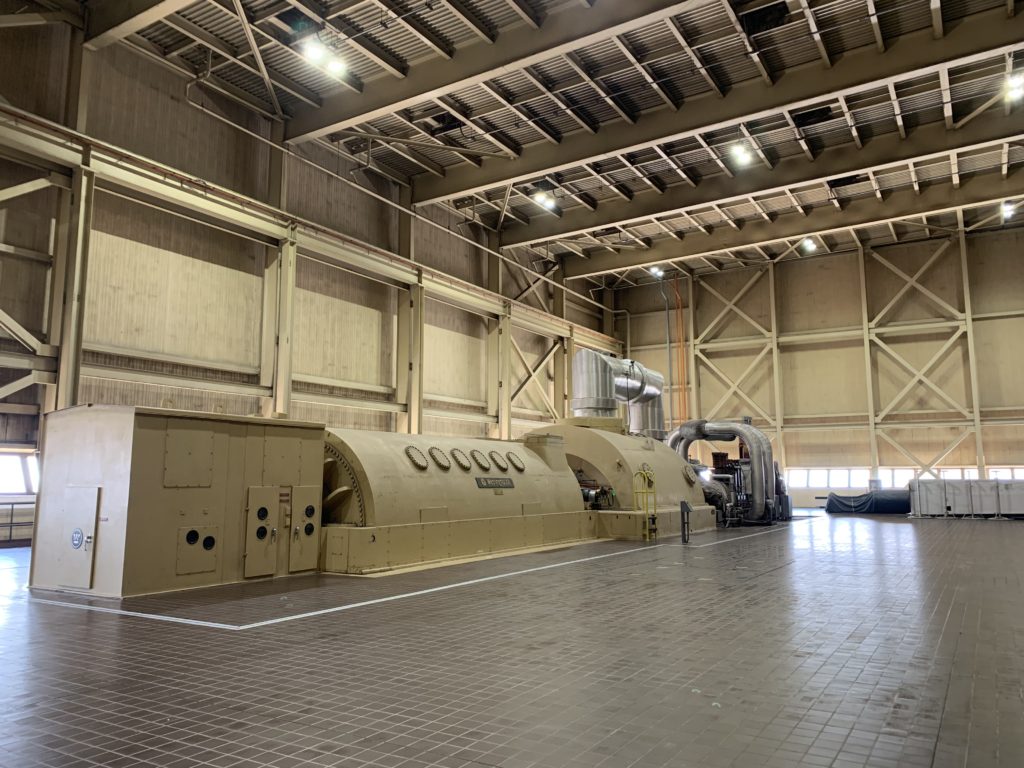
We also enjoyed a tour of the energy station. The image above is the generator for the coal plant. That’s the whole thing. A 16-story building and an enormous operation are dedicated to moving that turbine around.
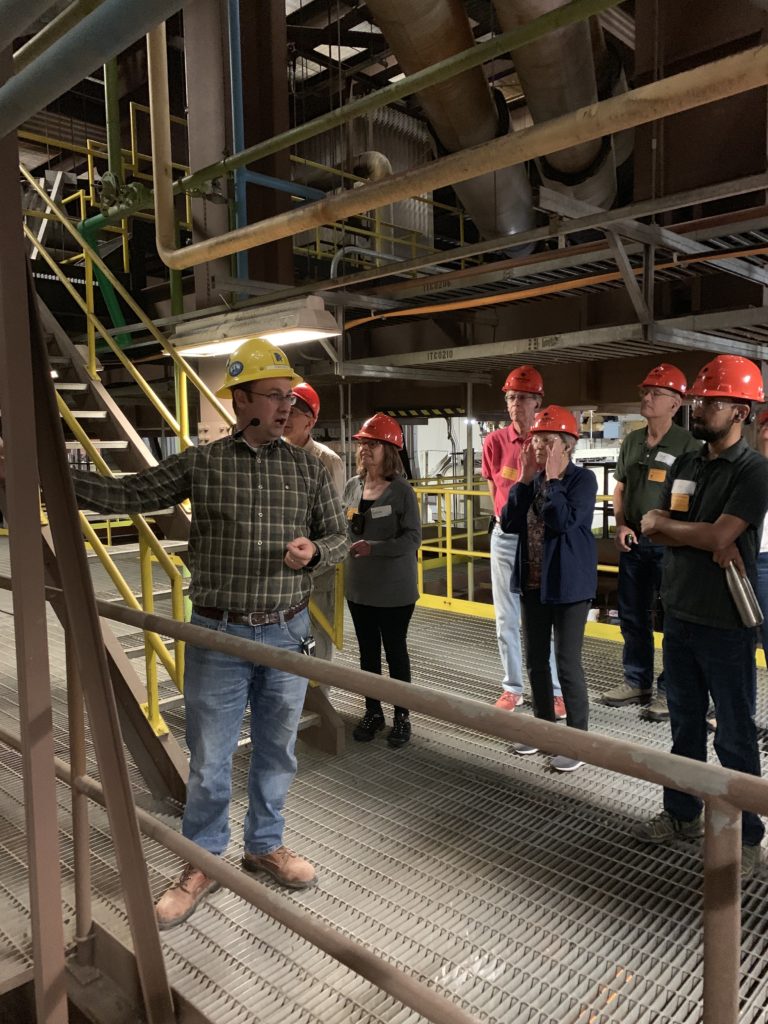
A few of my favorite tidbits from the Rawhide tour:
- Rawhide has a dedicated team to take care of the prize-winning bison on its campus. There are two separate 20-head herds, and the story goes that the bison were introduced to prove that the coal facility was operating in a clean way. Bison are hearty when it comes to heat and cold but not as resistant to pollution, so they were introduced to act as a canary in a coal mine, so to speak. The calves from their herds regularly fetch top dollar at the stock show.
- Rawhide does a lot of its own water treatment. The plant draws from the same reservoir as Fort Collins residents, then treats the water to be “1000x cleaner than drinking water” and amps the pH level to over 9, for use in the coal generator’s boilers. The purity and high pH keep the water from corroding the equipment.
- Rawhide also has its own much smaller reservoir, which it uses to cool the steam after the generation process. Because of the influx of hot water the reservoir never freezes, even in winter. Local wildlife has noticed this, and when Audubon sends teams out for bird counts, they often come upon species they don’t expect to be found in that area.
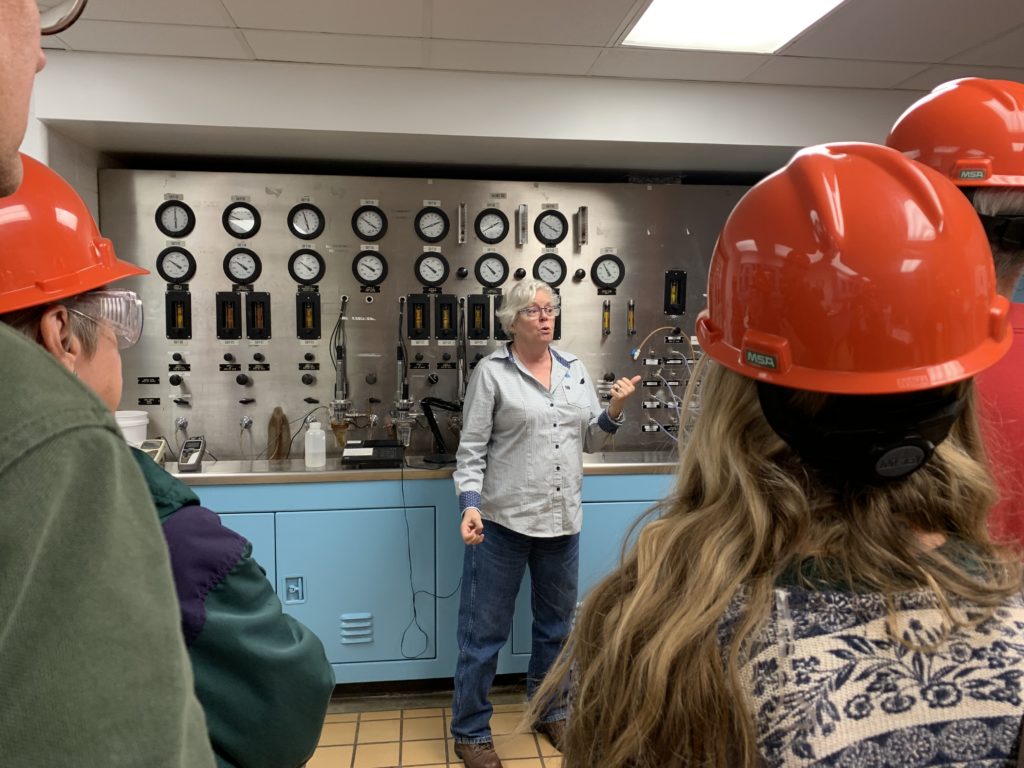
Above, Chemistry Supervisor Gale McGaha Miller in Rawhide’s water lab.
Below, an example of the enormous pulverizers used to crush the coal.
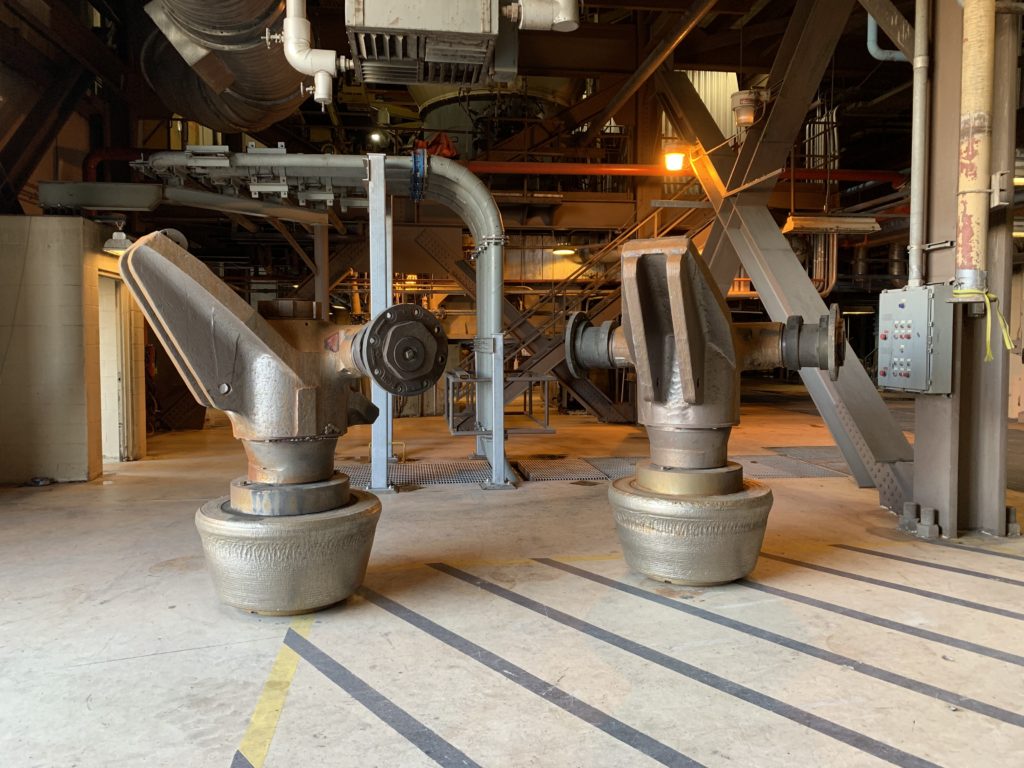
Our second and third stops were linked. We visited the local Light and Power sub-station to meet Gordon Cromwell, the Safety and Training Supervisor for Light and Power, who explained how the station receives and dispatches power transmissions. Rawhide transmits high-voltage power to the various sub-stations, which step down the voltage and send it to smaller transformers in (for instance) your neighborhood, which step the voltage down once more so it’s appropriate for home use.
Gordon then joined us for our third stop: a housing complex still in development, where we could see the underground wiring systems live because they’re not connected to power yet. Before this tour I had taken for granted that 99% of Fort Collins’ utilities are underground, which helps Light and Power avoid outages — and which is frankly just incredibly aesthetically pleasing.
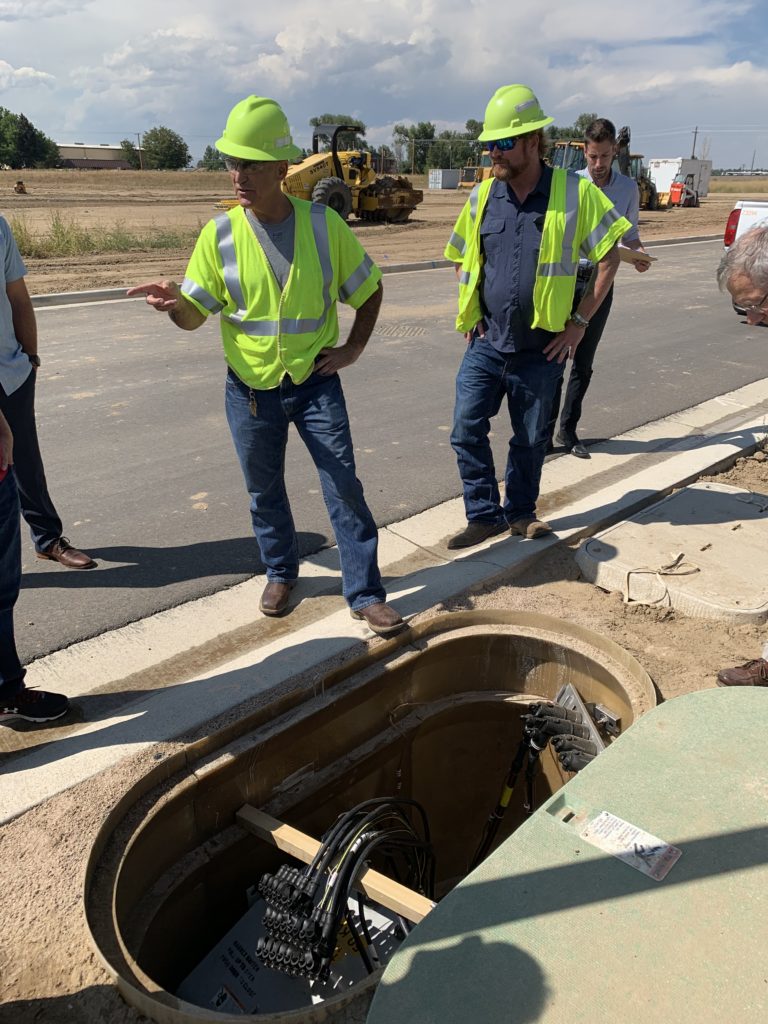
Our final stop: Odell Brewing. Sustainability Coordinator Corey Odell walked us through how Odell uses our local utilities, what challenges a brewery of their size faces, and what Odell is doing to conserve water and electricity. For example, they recently realized they could reuse hot water from part of their manufacturing process to wash the inside of their bottles, which saved over a million gallons of water per year.
Another favorite fact: after they rinse all of the flavor, sugar and yeast (basically: beer) from their grain mash, a local farmer takes the leftover grain and feeds it to his or her cows. This grain is healthier for cows than, say, corn, because it is high-protein but has had most of the sugar stripped out from the brewing/extraction process.
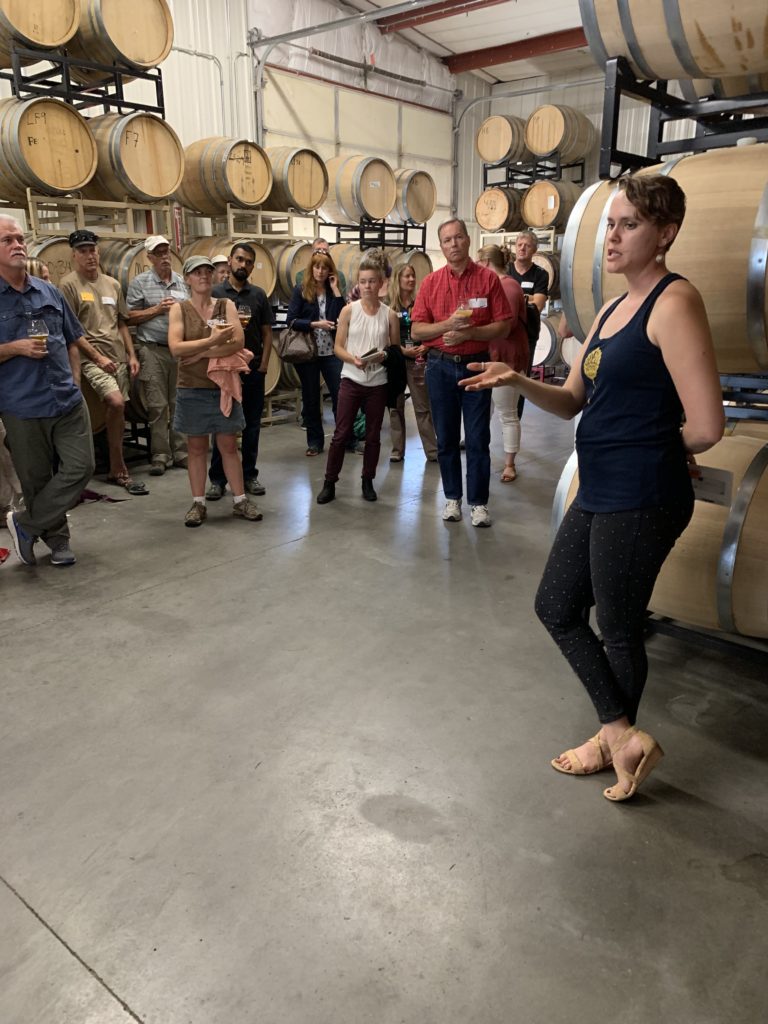
The Power Trip bus tour was exhaustingly informative, well-organized, and made me feel like a smarter citizen by the end of it. I am grateful to live in a city that values this type of engagement.
One thought on “Power Trip bus tour”